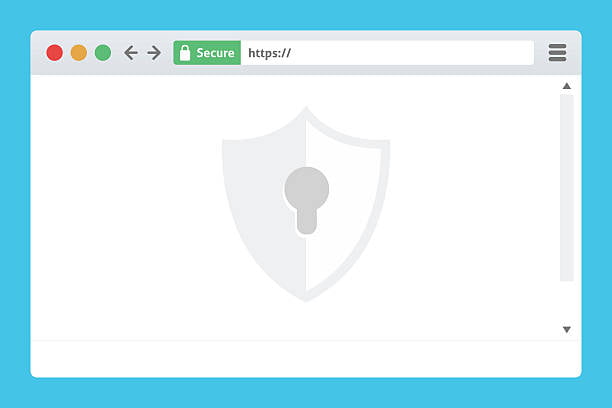Digital Marketing Services
Learn More About Us

Reports indicate that cyberattacks occur every 39 seconds. Whether you’re building a global eCommerce brand or a small lead-generating website, security should be a priority. One of the best ways to prevent cyberattacks is to encrypt a secure sockets layer (SSL) certificate and install hypertext transfer protocol secure (HTTPS) on your website.
If you’re using a website builder like Shopify, Bluehost, Wix, or Weebly, your hosting plan probably has an SSL certificate already. Although, you can also opt for third-party providers like Certificate Authority (CA). This alternative is ideal for coders who build their sites from scratch or developers who want customized, unique plans.
Ready to secure and protect your website? Keep reading to learn more about what a security certificate is, how it protects your site from hackers, why you should invest in one, and how to equip your site with HTTPS.
A security certificate is an encryption and identification system that protects both site owners and page visitors. Its core functions include:
The main purpose of an SSL certificate is to secure and encrypt data transferred between user servers and websites. Encryption ensures that no information will leak at any point in the transfer.
An SSL certificate guarantees users that the website they’re currently on has been verified and is operated by an actual human being, not a robot. Taking down the barrier of anonymity is a quick way to earn a prospect’s trust.
The Payment Card Industry Data Security Standard guidelines require all websites that collect payment details (e.g., contact number, card information) to have an SSL certificate. Transaction details must always be encrypted for privacy and protection.
The recurring bills and dues of security certificates pale in comparison to the risks of a cyberattack. Studies show that a data breach would set a large public company back by around $116 million. To prevent these types of attacks, make sure all data transfers remain encrypted.
Many websites still do not have SSL certificates. Reports indicate that 2/3 of all active sites on the internet have expired, inactive, or nonexistent security certificates. Having an HTTPS tag next to your domain ensures site visitors that you’re unlike the sketchy websites they’ve visited before and that the information they provide is 100% secure.
Google only places secure, HTTPS-encrypted websites with SSL certificates at the top of their search engine results pages (SERPs). Unsecure websites aren’t likely to rank. Google needs to keep their SERPs clean to maintain the public’s trust in them, after all.
Pro Tip: Want to drive more high-quality traffic to your website? Have our experts at Bliss Drive to optimize your website through unique, compelling, SEO-driven content.
Still don’t have an SSL certificate for your website? Consider investing in a security certificate right away. Yes, you might be able to get your website up and running even without HTTPS, but bear in mind that web browsers are required to inform page viewers right from the get-go if a page does not have an active security certificate.
Having an HTTPS tag not only boosts your ranking on Google SERPs, but prospects are also more likely to trust websites that Google tags as secure and certified. Building trust is especially important for shops and lead-collecting sites.
Struggling to get your website up and running? Bliss Drive helps SMBs create high-quality, SEO-driven websites designed to generate traffic and convert prospects. Reach out to the Bliss Drive team today to get started!
